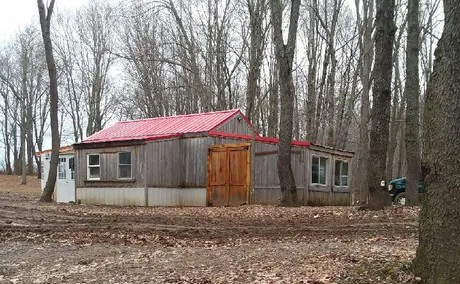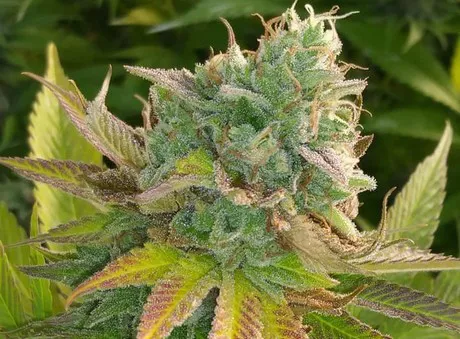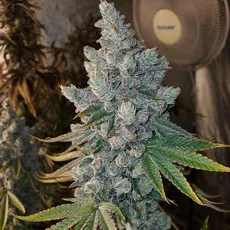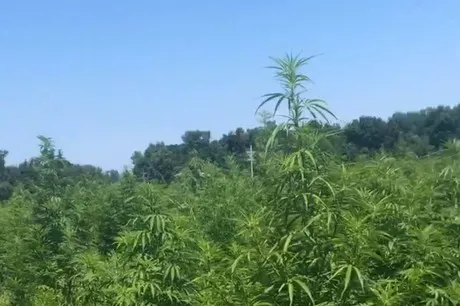Once there was a hippie community in Michigan called Rainbow Farms, where people grew cannabis and lived off the fruits of the land, until the place got raided and was forced to shut down. However, with the industry getting regulated, the concept behind Rainbow Farms was just waiting to be picked up again. “I was put in touch with the descendant of the farm’s owners who wanted to re-open it, re-establish the concept and grow cannabis legally,” Danny Kush explains. “We discussed and found out that we were driven by the same principle and passions, and thus decided to re-vamp Rainbow Farms.”

Thus, Danny Kush plans to make Rainbow Farms a community of medical cannabis growers, with both indoor and outdoor cultivations. “We are going to stack up licensing,” he points out. “The plan is to have an indoor facility where 1500 plants will be grown, as well as outdoor cultivation over the 150 acres of available land.”
The complexity of growing
Danny Kush has successfully managed and operated a number of cannabis operations, and thus he is very much aware of the complexity of growing. “We are developing a system that has already proved successful in other circumstances, and we are going to adapt it to the conditions here in Michigan.”

“We have partnered up with different cutting-edge companies to develop a system that ensures consistency both in the yield and in the quality.” Indeed, Danny points out that they are going to use a special type of LED lighting which is particularly suitable for micro-climate management.
Adjusting to the new environment
On top of the indoor and outdoor cultivation, Danny is going to retrofit a 30 feet tall warehouse. “There, we are going to set up a vertical system with different layers,” he explains. “We are going to implement natural lighting for the veg state in order to decrease the energy consumption, and to allow a more vigorous growth.” This also because Danny says that forcing light to handle more deep penetration does not really work. “It seems like a waste of time,” he says. “The bottom half of the plant gets defoliated anyway, so why spend so much energy on a part of the plant that doesn’t really need it.”
 Danny takes care to point out that the whole operation is going to be fully automated. “Sustainability is one of the most important things for us. This is why we are going to use a natural gravity water system, so that plants take only what they need.”
Danny takes care to point out that the whole operation is going to be fully automated. “Sustainability is one of the most important things for us. This is why we are going to use a natural gravity water system, so that plants take only what they need.”
Particular attention is also paid to the propagation and harvesting. “I have seen farms where the harvest has been done with no organization and awareness regarding the product,” he says. “We need to stagger our harvest and our genetics in order to increase the efficiency. That is why the system is going to ultimately be a scrog system staggered on harvest, where every other 2 weeks we are going to fill a layer and move it, and fill it again, in order to have a perpetual process in place.”
A community driven by passion
Although the concept behind Rainbow Farms has been upgraded to better align with regulations and the most recent large-scale cannabis growing techniques, at its heart this is still a community work. “The point here is to create a network of growers that can come here and legally grow medical cannabis,” Danny points out. “This is going to be a sort of manifesto for the next wave of the cannabis industry. The focus is indeed on growing the best cannabis and to create a network for growers to let them thrive, with special attention to sustainability.” Indeed, all the technologies and solutions that are going to be deployed in Rainbow Farms are particularly environmentally friendly. “For instance, we have partnered up with a company that extracts CO2 from the air to pump it into the greenhouse; then, we have a system coming from Australia that prevents plants from absorbing contaminants from the soil; on top of this, this living soil has everything that a plant needs, thus ultimately decreasing the water consumption up to 40%.”

It is not over yet, as the majority of the fuel used at Rainbow Farms will be derived from the hemp grown there. “The hemp that is going to be grown there will also be used to develop a biofuel that will be utilized to power the operation. For instance, if a grower decides to start to grow here, we are going to provide them with our own biofuel.”
The next wave of growers
Thus, as the cannabis industry entered this new decade experiencing some hiccups, it seems as if the next wave of growers is going to soon take over, to turn this business into what it was planned for. “This is all about helping people with medicines, but also to help growers in being successful,” says Danny. “Through this action, we can start addressing bigger-scale problems like climate change. The cannabis industry of the future needs to be fully sustainable, as a plant-growing industry should really be.”
For more information:
Kush Cloud Consulting
Danny Kush
(405) 482-6491
[email protected]
